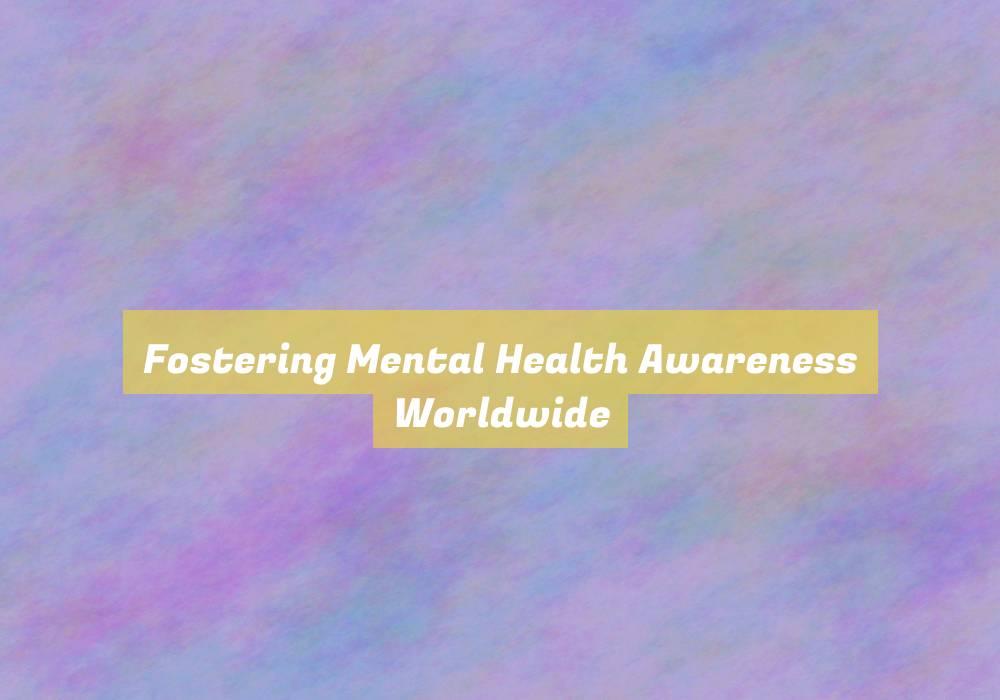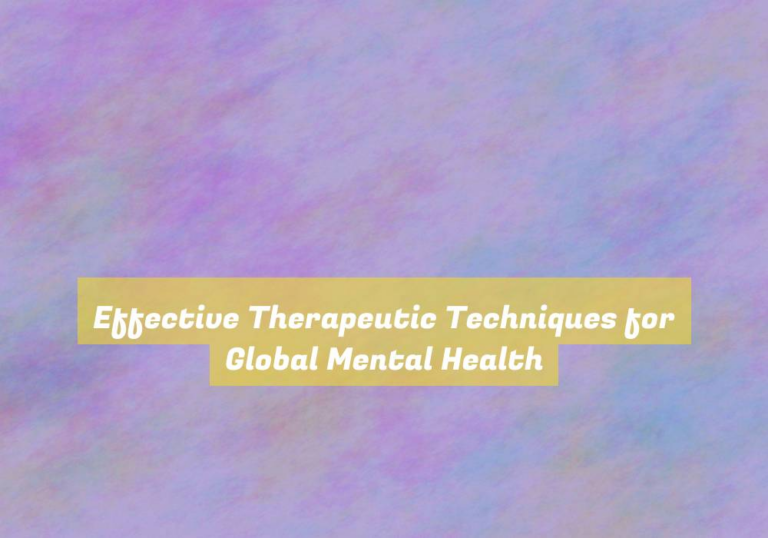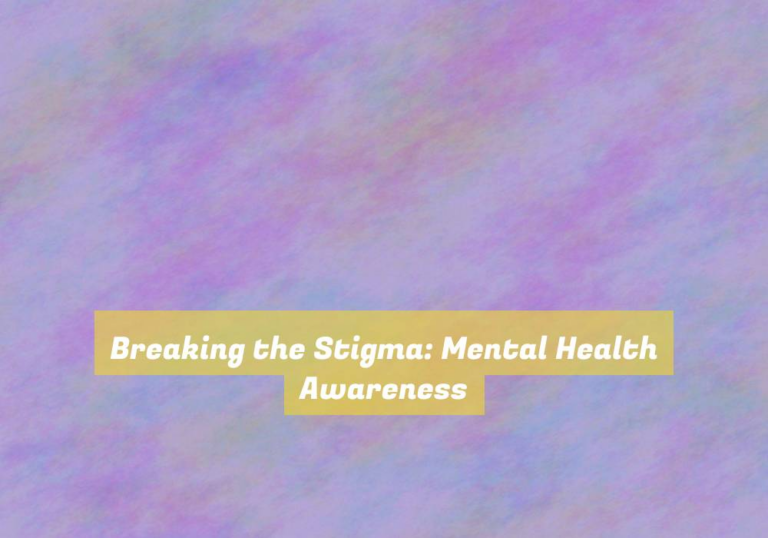Fostering Mental Health Awareness Worldwide
Imagine a world where mental health is given the same attention and care as physical health.
Despite progress in many areas, the global perspective on mental health still lags behind. Cultural stigmas and barriers often hinder open discussions and awareness, making it difficult for individuals to seek help and support.
However, there is hope. Initiatives and strategies are being developed to promote mental health support and provide universal access to resources.
As you continue, youG??ll learn about the impact of mental health stigma, cultural barriers to awareness, and the promising efforts to foster mental health awareness worldwide.
Global Impact of Mental Health Stigma
Addressing the global impact of mental health stigma is crucial for promoting understanding and support for individuals affected by mental health conditions worldwide. Stigma surrounding mental health can lead to discrimination, social exclusion, and limited access to opportunities for those affected.
This stigma isnG??t confined to any one country or culture, but rather permeates societies across the globe. Individuals with mental health conditions often face misconceptions and prejudice, hindering their ability to seek help and live fulfilling lives. This stigma also affects families and communities, creating barriers to open communication and support.
By acknowledging and addressing the global impact of mental health stigma, we can work towards creating a more inclusive and supportive environment for those affected. This involves challenging stereotypes, promoting education and awareness, and advocating for policies that protect the rights of individuals with mental health conditions.
Ultimately, breaking down this stigma on a global scale is essential for fostering empathy, understanding, and equal opportunities for all individuals, regardless of their mental health status.
Cultural Barriers to Mental Health Awareness
Cultural differences present significant barriers to mental health awareness and support across diverse communities worldwide. In some cultures, mental health issues are stigmatized, leading to reluctance in seeking help and support. Certain cultural beliefs may also attribute mental health struggles to personal weakness or spiritual issues, discouraging individuals from acknowledging or addressing their mental health needs. Additionally, language barriers and lack of culturally sensitive mental health resources can further impede access to necessary support. Moreover, the perception of mental health can vary greatly across cultures, impacting the recognition and acceptance of mental health conditions and treatment options.
Understanding and addressing cultural barriers is crucial in fostering mental health awareness and support on a global scale. It requires creating culturally sensitive resources, training culturally competent mental health professionals, and engaging with community leaders to promote dialogue and education around mental health. By acknowledging and respecting cultural differences, we can work towards breaking down these barriers and promoting mental health awareness and support thatG??s inclusive and accessible to diverse communities worldwide.
Initiatives for Promoting Mental Health Support
To promote mental health support, itG??s essential to develop community-based initiatives that provide education and resources tailored to the specific needs of diverse cultural groups. These initiatives should focus on raising awareness about mental health issues and reducing stigma. One effective approach is to collaborate with local community leaders, religious organizations, and cultural groups to tailor mental health education and support services to the unique cultural beliefs and practices of each community. By doing so, individuals are more likely to seek help and support when it aligns with their cultural values and norms.
Another important initiative is to provide accessible and affordable mental health services within communities. This can include establishing community mental health clinics, offering telehealth services, and training local healthcare providers in culturally sensitive mental health care. By making mental health services more accessible, individuals are more likely to seek help and receive the support they need.
Furthermore, promoting mental health literacy through educational programs in schools, workplaces, and community centers can help individuals recognize symptoms of mental health issues and know how to access support. By fostering understanding and empathy, these initiatives contribute to creating supportive environments for individuals struggling with mental health challenges.
Strategies for Universal Access to Mental Health Resources
Creating inclusive and easily accessible mental health resources is crucial for ensuring that individuals from all backgrounds can receive the support they need. One strategy for universal access to mental health resources is the integration of mental health services into primary healthcare systems. This approach allows for early intervention and reduces the stigma associated with seeking mental health support.
Additionally, utilizing digital platforms and telemedicine services can bridge the gap for individuals in remote or underserved areas. By offering online counseling and therapy sessions, mental health resources become more accessible to a wider population.
Another effective strategy involves promoting mental health literacy and awareness within communities. This can be achieved through educational programs in schools, workplaces, and community centers. By increasing understanding and reducing misconceptions about mental health, more individuals may feel comfortable seeking help when needed.
Furthermore, establishing partnerships between mental health organizations and community leaders can facilitate the dissemination of information and resources to diverse populations.
Conclusion
So, take action today to break the stigma and raise awareness about mental health.
By understanding cultural barriers and promoting initiatives for support, we can make a global impact.
LetG??s work towards universal access to mental health resources and foster a world where everyone feels supported and understood.
Together, we can make a difference in the lives of those struggling with mental health challenges.





